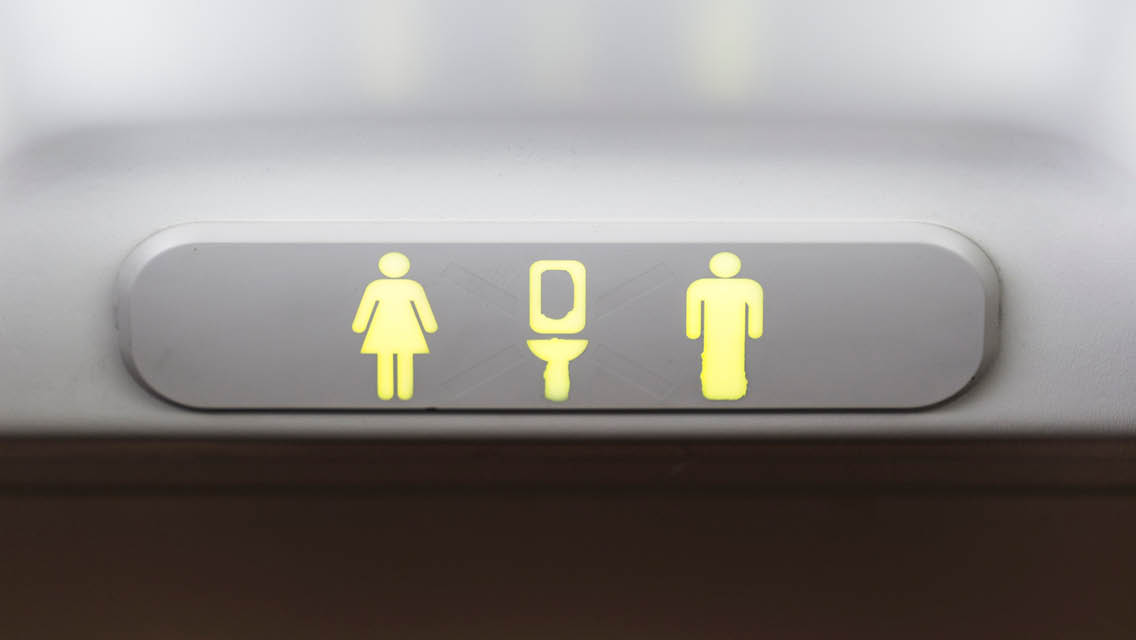The same factors that take a toll on our sleep — altered routines, higher stress, new environments — can also do a number on elimination. “People are off their daily rhythm when traveling, and they don’t have as much private time,” notes integrative psychiatrist Henry Emmons, MD, author of The Chemistry of Joy. “For a lot of people, the GI system kind of shuts down.”
Eating on the run is also less conducive to mindful food choices. We may get less fiber than usual or find ourselves scarfing meals in a rush. “All these things compound,” says Sara Jean Barrett, ND.
Staying hydrated is a simple and important piece of the digestion puzzle. “Particularly when you fly, you want to stay hydrated,” she says; the recycled air on planes can dehydrate you quickly.
Always pack an empty water bottle in your carry-on, ideally with a filter, and fill it once you’re through security. Keep it handy on your flight and take regular sips. Bring a reusable straw if you prefer to stay masked while you drink.
Getting enough fiber is also important. “Bring your own high-fiber snacks or a meal packed at home,” suggests Barrett. Energy balls made with nut butter, chia seeds, oats, and protein powder are easy to prep in advance.
Carrot sticks with hummus make a well-balanced, portable snack. And prunes are a reliable choice for keeping things moving.
When grabbing meals on the go, emphasize veggies, fruits (especially berries), and beans, says nutritionist Samantha McKinney, RD, CPT, a Life Time master trainer. “Be diligent about getting that fiber in.” (Learn why fiber is so critical to your health — and which foods are high in fiber — at “Fiber: Why It Matters More Than You Think“.)
Magnesium has a role to play here, too. Not only does it help with sleep and stress, but it’s also a key player in keeping us regular. “Magnesium is a good supplement for most people to take regularly — not just when you’re traveling,” McKinney says.
Emmons also packs capsules of Triphala, an Ayurvedic herbal remedy that supports gut motility. “It won’t cure constipation, but it can help prevent it,” he notes. “Start it about a week before your trip rather than waiting until you’re traveling.”
In addition to keeping you calm during a flight or long drive, practicing deep-breathing exercises can help stimulate the vagus nerve, which is critical for healthy digestion. (Learn more about the vagus nerve at “Why the Vagus Nerve Matters to Your Health“.)
When you reach your destination, take a few minutes to do some gentle yoga poses. “Anything that twists your midsection will be helpful,” says Barrett. “Squeezing, twisting, and big belly breaths can help keep things moving.” (Try these three, gentle, twisted yoga moves to start.)
This was excerpted from “6 Common Travel Illnesses and How to Treat Them” which was published in the November 2022 issue of Experience Life.





This Post Has 0 Comments